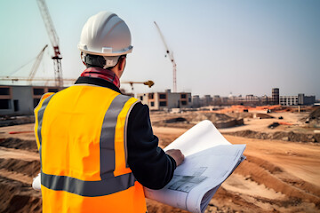Building Resilience: The Role of Structural Engineers in NJ and NJDEP Permit Compliance Amid Climate Change
As the impacts of climate change continue to manifest
in more frequent and severe weather events, the importance of resilience engineering
has never been more pronounced. In New Jersey, structural engineers play a
pivotal role in designing and retrofitting structures to withstand the
challenges posed by climate change, while also ensuring compliance with NJDEP
permit regulations.
Structural engineer
NJ
are tasked with the critical responsibility of designing buildings and
infrastructure that can withstand the increasing threats associated with
climate change. From rising sea levels and coastal erosion to more intense
storms and flooding, these professionals must consider a wide range of factors
when designing resilient structures. This includes employing advanced modeling
techniques, such as finite element analysis and computational fluid dynamics,
to simulate the effects of extreme weather events and assess structural
vulnerabilities.
In parallel, NJDEP
permit compliance adds an additional layer of complexity to
resilience engineering efforts. Compliance with NJDEP regulations is essential
to ensure that structures are not only resilient but also environmentally
responsible. This involves adhering to guidelines related to air and water
quality, hazardous waste management, and land use planning, among others.
Structural engineers must navigate these regulations seamlessly, integrating
sustainability principles into their designs while meeting permit requirements.
One approach to achieving resilience in the face of
climate change is through nature-based solutions. Structural engineers in NJ
are increasingly incorporating green infrastructure elements, such as
vegetative roofs, permeable pavements, and rain gardens, into their designs to
mitigate flooding, enhance stormwater management, and improve overall
resilience. These nature-based solutions not only help address climate-related
challenges but also contribute to achieving NJDEP permit compliance goals.
In conclusion, resilience engineering in the face of
climate change requires a multidisciplinary approach that integrates the
expertise of structural engineers in NJ with the regulatory framework of NJDEP
permit compliance. By designing resilient structures that meet environmental
standards, these professionals are playing a vital role in safeguarding
communities and infrastructure against the impacts of a changing climate. As
climate change continues to pose new challenges, the collaboration between structural
engineers and regulatory agencies will remain essential in building a more
resilient future for New Jersey.
For more
information about NJDEP permit compliance come and
visit our website : https://www.lockatong.com/




Comments
Post a Comment